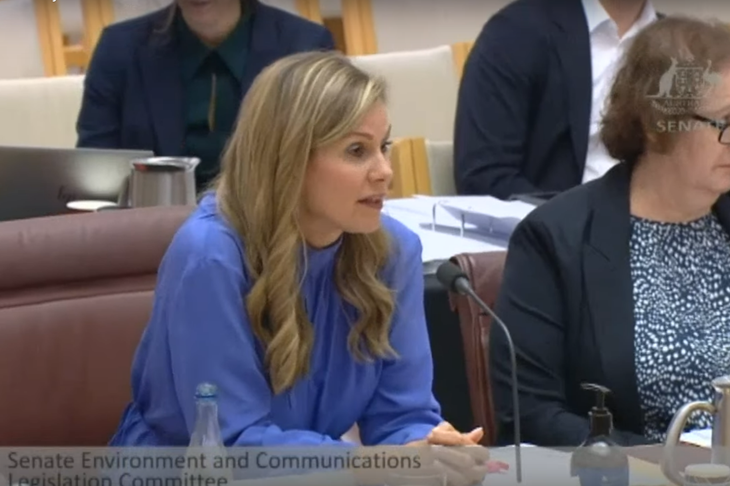
UPDATE: The political landscape in Australia is shifting as the Federal Shadow Communications Minister, Melissa McIntosh, has just announced a call for an urgent inquiry into the powers of Julie Inman Grant, Australia’s eSafety Commissioner. This move comes amid growing concerns over the Commissioner’s authority, particularly her ability to compel the use of Digital ID, a measure many Australians oppose.
Inman Grant was recently named the third most culturally powerful person in Australia by the Australian Financial Review, a recognition that underscores her influence in shaping online safety laws. However, McIntosh’s push for scrutiny signals a significant political shift, highlighting the increasing discomfort around the eSafety Commissioner’s role.
“[The eSafety Commissioner] has the power to compel people to use Digital ID,” McIntosh stated, emphasizing that these powers require immediate examination. This inquiry follows a previous bid led by Malcolm Roberts and Ralph Babet that was blocked by the Labor-Greens alliance, raising questions about governmental oversight in digital regulation.
The eSafety Commissioner was originally established in July 2015 during the Abbott Coalition government, initially focused on children’s online safety. In 2017, the role expanded to cover all Australians, leading to allegations of increased governmental overreach and censorship under the guise of safety.
Senator Alex Antic voiced concerns at a recent event, stating, “The government does not care about your kids,” criticizing the conservative side of politics for using safety as a pretext to suppress dissenting voices. This sentiment resonates widely as the nation grapples with the implications of stringent online regulations that some argue infringe on personal freedoms.
As new rules set to take effect in December 2025 will require adults to log into accounts to browse the internet, McIntosh reiterated the necessity for a thorough review of these powers. “Requiring adults to log in to browse the internet is taking the eSafety Commissioner’s power to a new level,” she warned, highlighting the delicate balance between protecting young people and safeguarding individual privacy rights.
The urgency of McIntosh’s inquiry is compounded by recent data leaks that have eroded public trust in digital systems, including a breach that exposed the phone numbers of high-profile politicians. The implications of the eSafety Commissioner’s expanding powers are significant, with potential geopolitical repercussions, particularly given the U.S. Administration’s concerns over Australia’s approach to free speech.
As December approaches, parents and citizens will be closely monitoring how these policies affect children’s access to online spaces during the holiday season. McIntosh’s initiative reflects a broader sentiment among conservatives who are now demanding accountability from the Liberal Party for empowering the eSafety Commissioner’s controversial regulations.
With an escalating debate surrounding online safety and personal freedoms, the future of digital regulations in Australia remains uncertain. Will McIntosh’s call for an inquiry lead to substantial change? As the nation awaits answers, the conversation around the eSafety Commissioner’s role is far from over.
Stay tuned for further updates on this developing story.





